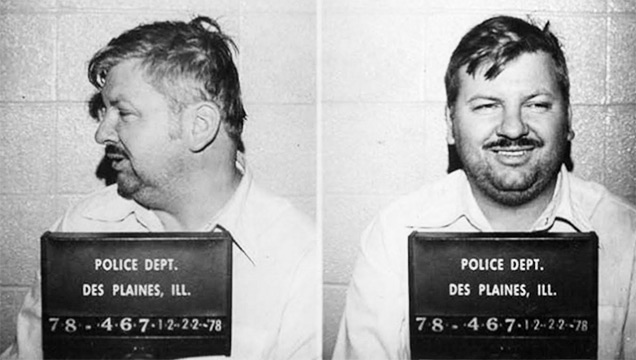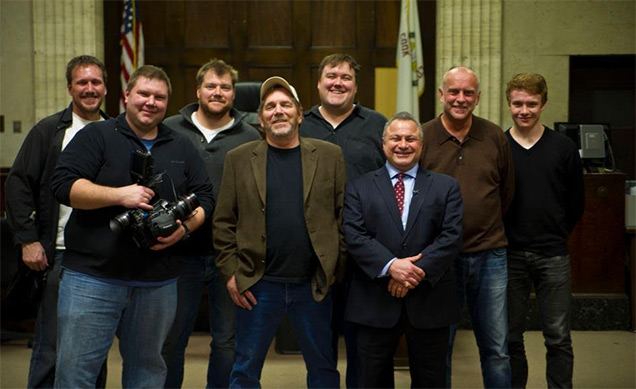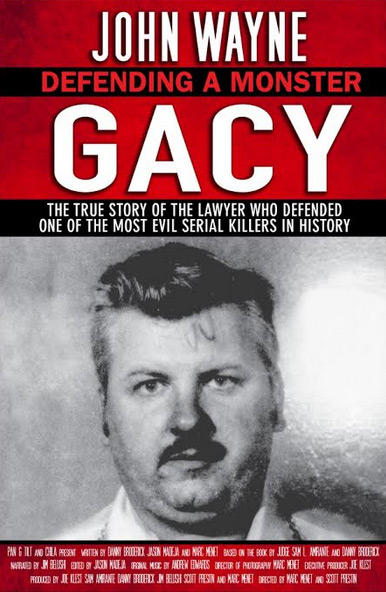Documenting pure evil: interview with Scott Prestin, co-director of Defending a Monster

Defending a Monster is a true crime documentary that explores the shocking case of John Wayne Gacy, the worst serial killer in American history. Throughout the 1970s he tortured and murdered at least 33 teenage boys and young men.
Directed by Marc Menet and Scot Prestin, the film has its Australian premiere at the Melbourne Documentary Film Festival on July 25. Flicks sat down with Prestin to discuss making this deeply disturbing documentary, which focuses on Gacy’s trial.
This is a really insane story, isn’t it?
Yeah. There’s been several movies about Gacy, but nobody’s ever really delved into the trial. It’s a compelling story. This guy killed dozens of teenagers and was the most popular guy on his block for years. It’s insanity. Our co-producer, Judge Sam Amirante, was hired by this guy to represent him on a basic police harassment issue. Then Gacy called him at close to midnight one night and said ‘hey, can I meet you at your office’. He brought a bottle of scotch and said: ‘I killed 30 kids’.

Defending a Monster is reminiscent of the recent Ted Bundy films on Netflix, in the sense that there’s this idea that serial killers can give no outward displays of being evil.
You get chills just thinking about it. If you’re familiar with the game Six Degrees of Kevin Bacon, it’s kind of that way with Gacy in Chicago. Chicago has millions of residents, but somebody knows somebody who knows somebody who went to one of his famous barbecues. He would have 200 people in his backyard for his themed barbecues. He was a popular guy, a big shot in the Democratic party. In his off time he was snuffing teenagers. It’s an amazing story – but a depressing one too, once you get into the details.
It’s hard to imagine the film being made without Sam’s involvement. What is the history of how Sam became involved in the film?
I’m an attorney. A filmmaker first and an attorney second, I guess, at this point. An attorney friend of mine said to me ‘hey, I’m having dinner tonight with the attorney who defended John Wayne Gacey in court, do you want to come along?’ A couple of cocktails later we’re all screaming ‘documentary!’ In the meantime Sam L. Amirante and Danny Broderick had written a best-selling book with the same title, Defending a Monster. So our film is basically the official documentary of that best-selling book. You need Daniel on that story. He represented him in court, he defended him, he got to know him more personally than anyone during that time. We’re just kind of telling that story.
While it has that serial killer element to it, that sadly enough marketable element to it, we do go into the insanity defense. The right to trial. Being guilty in the press. All those things that are as important as ever right now, with the press going crazy about Trump and all that fun stuff.

As an attorney, do you believe that everybody – even the most heinous and despicable criminals – deserves representation in court?
Some of that came up in the movie. Firstly, everybody is innocent until proving guilty. I think we’ve all heard that over and over. Secondly, when you have John Wayne Gacy, or pick your favourite criminal who is guilty in the press, that’s what we’re all trying to avoid in modern society – allowing the press to be judge and jury. We don’t want anyone to be guilty in the press. There are some Gacy-like trials, where there is a landslide of evidence, but everybody deserves their day in court. Everybody deserves to argue for their freedom in front of a jury of their peers.
Why would somebody like Sam step up and take this case? In America, and in most democratic courses, if you’re hot heralded through the system by a competent attorney, you can claim mistrial and that actually pushes you further away from justice. So someone – some good quality attorney – had to step up and walk this guy through the court system. He did the best he could. This guy was guilty 200 times over. Sam went for the insanity defense – that was the only play he had – and nobody wanted to buy it. But a quality attorney had to step up and walk this guy through the system, or a mistrial would be hanging in the balance.
If Sam had been successful in saving Gacy’s life, and convincing people of his insanity, do you think Sam would have walked away feeling happy with that?
As a father I think he would have had very mixed feelings. But as an attorney I think he would have had the satisfaction of doing his job and operating as part of the justice system. He’s a dad, so I am sure he had very mixed feelings about all this stuff. But just like a doctor has to turn off their feelings at some point and dig into someone’s body and do some work, attorney’s have a duty to their clients – you have to leave the rest of it at home.
How did researching and making this film make you feel?
We went through the court files. We saw the original black and white prints of the victims. We went through tapes with the victims’ families. It is gut-wrenching. I put on one of the suit coats that Gacy wore to trial. I pulled out a snot rag and a piece of hard candy. They were Gacy’s. I had Gacy DNA in my hand. We were pretty in touch with everything. At the end of the day you just feel very bad for the victims and their families. All those teenagers plucked away from their loved ones. It was horrible.
To purchase tickets to Defending a Monster, or any other film at the Melbourne Documentary Film Festival, head to the official website.
















